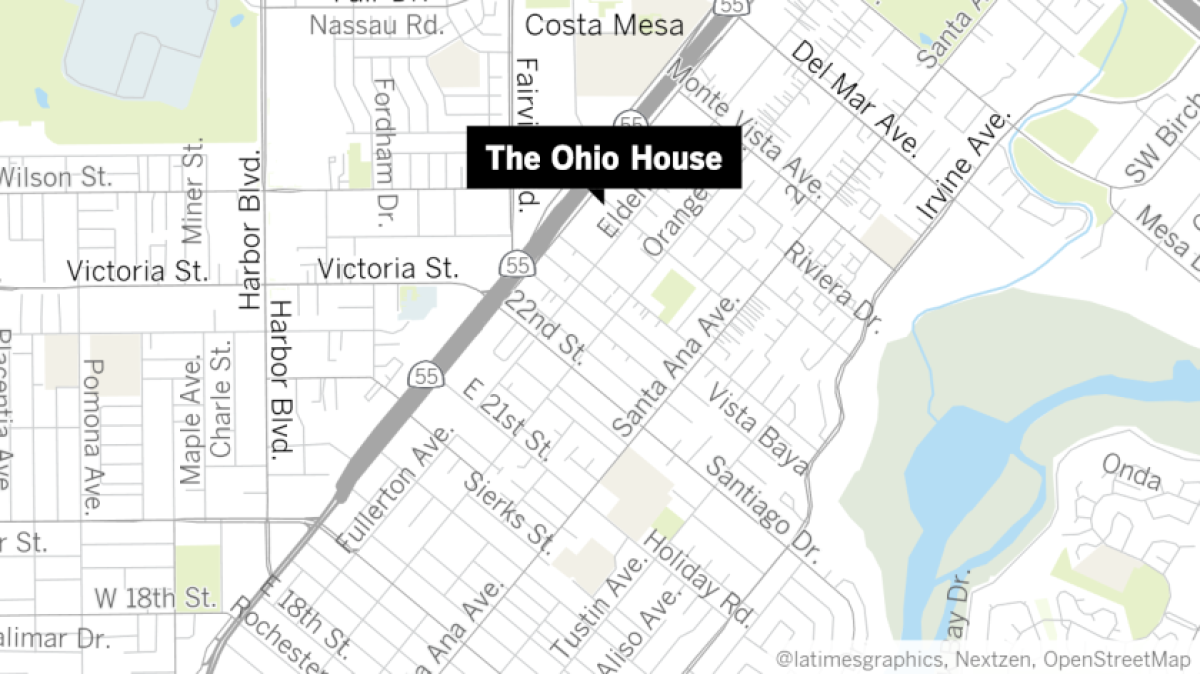Costa Mesa council shoots down permit for five-unit sober-living facility

The Costa Mesa City Council denied a permit Tuesday to essentially “grandfather” a major sober-living facility on the Eastside, wrapping up a two-year process of denials that could lead to the five-unit compound shutting down.
Like city staff and planning commissioners before it, the council unanimously rejected a conditional use permit for the Ohio House, which houses up to 35 clients and 10 live-in managers at 115 E. Wilson St., because the establishment is within 650 feet of another, city-approved sober-living home on Wilson.
Ohio House representatives said the facility has been operating on its site in some capacity since 2012, predating 2015 sober-living home regulations and making it eligible to be grandfathered.
Ohio House attorney Garrett Prybylo told the council that the facility is a model operator worthy of a “reasonable accommodation” exception, especially with the dwindling local availability of approved sober-living housing for recovering residents.
People in recovery from drug and alcohol addiction are considered disabled under federal law.
Some of Ohio House’s clients are long-term residents, Prybylo said.
“It’s hard to imagine where all these individuals will be able to find such housing in the community with an operator of this quality,” he said.
Ryan Stump, who runs the facility with his brother Brandon, said there has been only one complaint about Ohio House violating the city’s standard against over-concentration of sober-living homes.
“That sounds pretty reasonable to me,” he told the council.
Chiropractor Babak Shahrestani, whose office is next to Ohio House, said the residents are ideal, quiet neighbors who respect his parking spaces and never make him feel unsafe. He said people loitering in the alley between the facility and his practice, which has been there for nearly 30 years, are drawn by a nearby convenience store, not Ohio House.
“If one of my sons ... was dealing with addiction, I would want a place like this to be available to them. What other chances do they have?” Shahrestani said. “We’re looking at numbers, and 650 feet vs. 550 feet, to kick them out. That’s absurd. You’re dealing with human beings here.”
The 2015 rules require that sober-living homes, including existing ones, obtain conditional use permits if they have more than six residents and are in multifamily zones and abide by the buffer rule requiring sober-living homes to be at least 650 feet from one another in residential areas.
Councilwoman Sandy Genis said she was impressed by the Ohio House residents she met at a recent “Love Costa Mesa” service day but said there was no justification for waiving the buffer standard.
The city prevailed in December in a federal lawsuit that targeted the regulations on sober-living homes, including the 650-foot separation rule, on grounds that they discriminate against people with disabilities.
All the latest on Orange County from Orange County.
Get our free TimesOC newsletter.
You may occasionally receive promotional content from the Daily Pilot.




